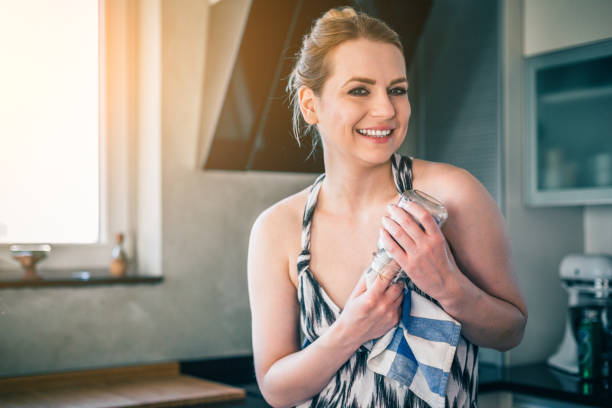Are you tired of the harsh chemicals and high prices of store-bought cleaning products? Making your own homemade cleaning solutions is a simple, cost-effective, and environmentally friendly way to keep your home sparkling clean. In this comprehensive guide, we’ll walk you through everything you need to know to start creating your own custom cleaning products.
Why Make Your Own Cleaning Products?
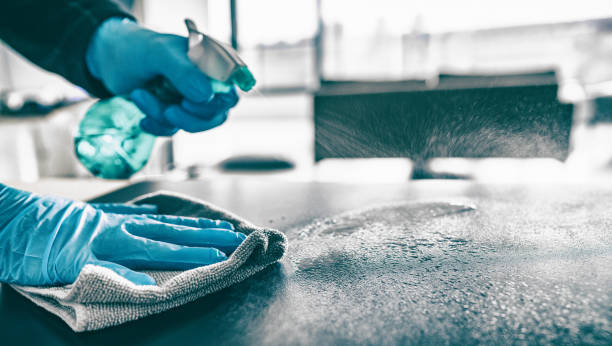
There are numerous benefits to ditching the commercial cleaners and making your own:
- Reduced Exposure to Harsh Chemicals: Many store-bought cleaners contain a cocktail of synthetic chemicals that can be harmful to your health and the environment. These include volatile organic compounds (VOCs), fragrances, dyes, and other questionable ingredients that have been linked to respiratory issues, skin irritation, and even hormone disruption. Homemade alternatives allow you to avoid these problematic components and clean your home without compromising your wellbeing.
- Cost Savings: The ingredients for homemade cleaners are inexpensive and often already in your pantry. Things like vinegar, baking soda, castile soap, and essential oils can be purchased in bulk for a fraction of the cost of name-brand cleaning products. Over time, the savings really add up, freeing up your budget for other household needs.
- Customization: When you make your own cleaners, you can tailor the formulas to your specific needs and preferences. This allows you to create solutions that work best for your home surfaces, odor problems, and cleaning challenges. You can also adjust the scents, strength, and other properties to suit your personal tastes.
- Eco-Friendliness: Most homemade cleaners are plant-based and biodegradable, making them a more sustainable option compared to commercial cleaners which often contain harsh chemicals that pollute the environment. By reducing your reliance on single-use plastic bottles and toxic formulas, you’re doing your part to reduce your environmental impact.
- Improved Indoor Air Quality: Many commercial cleaning products release volatile organic compounds (VOCs) and other airborne pollutants that can degrade your indoor air quality. Homemade alternatives are much gentler, allowing you to clean without compromising the air your family breathes.
Essential Ingredients for Homemade Cleaning Solutions
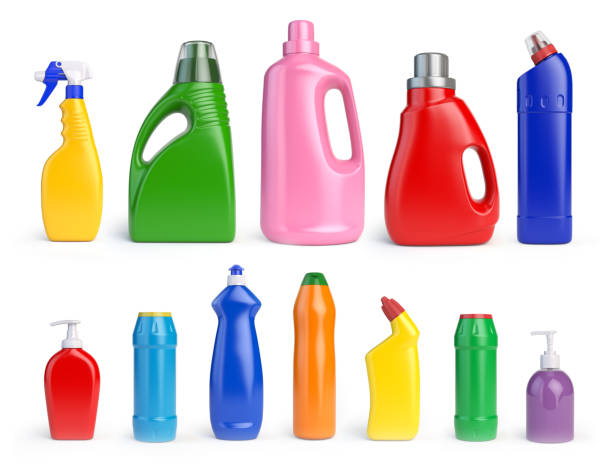
The great thing about making your own cleaning products is that the ingredients are simple and affordable. Here are some of the most common and useful base ingredients:
- Water: The foundation for many homemade cleaners. Purified or distilled water is best to avoid any impurities or contaminants.
- Vinegar: A versatile natural disinfectant and degreaser. White vinegar or apple cider vinegar work well, and both have excellent cleaning and deodorizing properties.
- Baking Soda: A gentle abrasive that can tackle tough stains and odors. Baking soda is a kitchen staple that’s great for scrubbing, absorbing smells, and cutting through grease.
- Castile Soap: A plant-based, biodegradable liquid soap that can be used for all-purpose cleaning. Castile soap is made from vegetable oils and is free of synthetic additives.
- Essential Oils: Add natural fragrance and extra cleaning power to your homemade products. Favorites include lemon, lavender, peppermint, tea tree, and eucalyptus oil.
- Hydrogen Peroxide: A powerful oxidizing agent that kills germs and bacteria. It can be used as a natural bleaching and disinfecting agent.
- Vegetable-Based Glycerin: Helps moisturize and condition surfaces, making it great for use on wood, metal, and other delicate materials.
You can find these ingredients at most grocery stores, natural food markets, or online. Buying in bulk can help keep the costs down, and many of these items have multiple household uses beyond just cleaning.
Simple Homemade Cleaning Recipes
Ready to get started making your own cleaning products? Here are some easy, effective recipes to try:
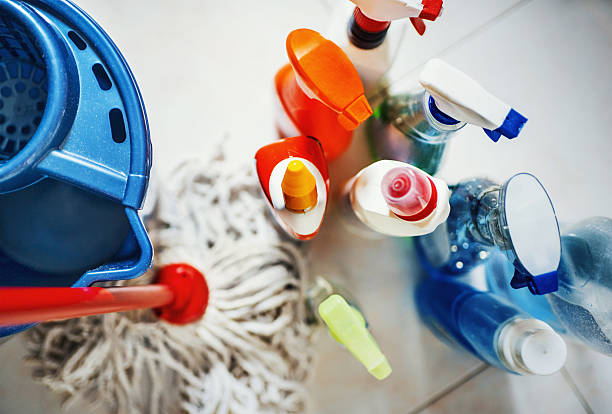
All-Purpose Cleaning Spray
- 1 cup water
- 1/2 cup white vinegar
- 10-15 drops essential oil (lemon, lavender, or tea tree oil work well)
- Combine all ingredients in a spray bottle and shake to mix. This versatile cleaner can be used on countertops, sinks, stovetops, and more.
Glass and Window Cleaner
- 1 cup water
- 1/4 cup white vinegar
- 1-2 tablespoons rubbing alcohol (optional)
- 5-10 drops essential oil (optional)
- Mix all ingredients in a spray bottle. The vinegar helps cut through grime and streaks for streak-free, sparkling windows and mirrors.
Bathroom Scrub
- 1 cup baking soda
- 1/4 cup castile soap
- 2 tablespoons water
- 10-15 drops tea tree or lemon essential oil
- Mix into a spreadable paste and use on tubs, tiles, and sinks. The baking soda provides gentle abrasive cleaning while the essential oils disinfect.
Laundry Detergent
- 1 bar grated castile soap
- 1 cup washing soda
- 1 cup borax
- 10-20 drops essential oil (optional)
- Combine all ingredients and use 1-2 tablespoons per load of laundry. This homemade detergent is effective at cleaning clothes while being gentle on fabrics.
Dish Soap
- 1 cup castile soap
- 1/4 cup water
- 1 tablespoon vegetable glycerin
- 10 drops lemon essential oil
- Mix together the castile soap, water, and glycerin. Then add the lemon oil for a fresh, clean scent. Pour into a dispenser for easy hand-washing of dishes.
Furniture Polish
- 1/2 cup olive oil
- 1/4 cup white vinegar
- 10-15 drops lemon essential oil
- Combine in a spray bottle and mist onto furniture, then wipe clean. The olive oil conditions and protects wood surfaces.
Step-by-Step Instructions for Making Cleaning Products
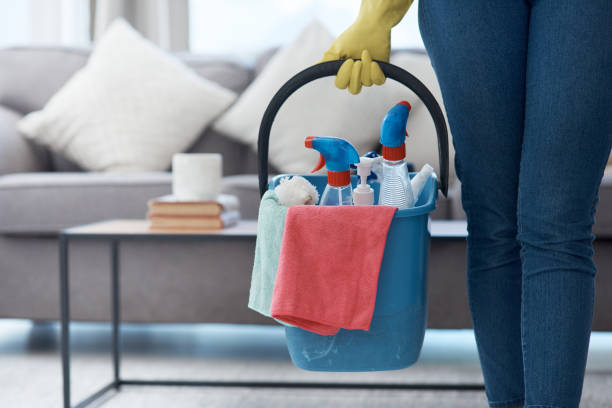
Crafting your own cleaning supplies is quick and easy. Here’s a general process to follow:
- Gather Ingredients: Assemble all the necessary base ingredients and any essential oils or other additives you want to use. Make sure you have clean, reusable containers or spray bottles on hand as well.
- Measure and Mix: Carefully measure out the amounts called for in your recipe. Then simply combine the ingredients in a bowl or directly into the container you’ll be using. For liquids, you can use a funnel to avoid spills.
- Label and Store: Pour your homemade cleaner into a clean, labeled container. Storage containers with tight-fitting lids work best to prevent leaks or contamination. Be sure to label each one with the contents and date. Store them in a cool, dark place.
- Safety First: Always use caution when handling the ingredients, especially essential oils which can be potent. Wear gloves if needed and ensure proper ventilation. Keep all homemade cleaners out of reach of children and pets.
With a little bit of preparation, you can quickly whip up effective, eco-friendly cleaning products right at home! The entire process typically takes less than 10 minutes per batch.
Tips for Customizing and Experimenting
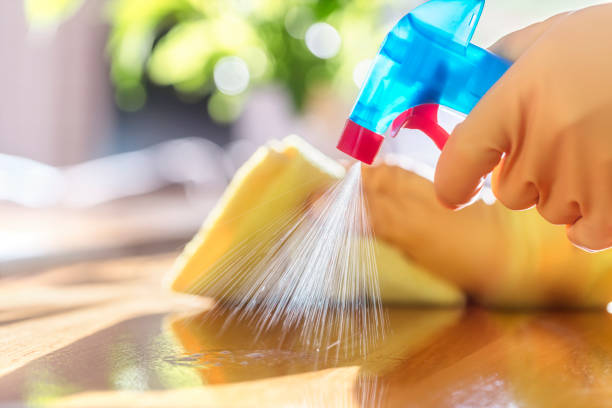
The fun part about making your own cleaners is that you can endlessly customize and tweak the recipes to suit your needs. Here are some ideas to get you started:
- Fragrance: Experiment with different essential oil blends to create your desired scent. Citrus notes like lemon or orange pair well with herbaceous oils like lavender or rosemary. You can also try woody scents like cedarwood or earthy ones like vetiver.
- Cleaning Power: Increase the amounts of vinegar, baking soda, or castile soap for tougher jobs. Add a splash of hydrogen peroxide for extra disinfecting power against germs and bacteria.
- Application: Try different containers and applicators, like spray bottles, pump dispensers, or reusable cleaning cloths. This can make application easier and more effective for different surfaces.
- Scaling: Most recipes can be easily scaled up or down depending on how much you need to make. This allows you to make just enough to fill your current containers or prepare larger batches to last several months.
Don’t be afraid to get creative and have fun with it! The beauty of homemade cleaners is that you can perfect the formulas to work best for your specific cleaning needs and preferences.
Making the Switch to Homemade Cleaning
If you’re used to relying on store-bought cleaners, transitioning to homemade can seem daunting at first. But with a little planning and patience, you can make the switch seamlessly.
The best approach is to start small – replace one or two of your most commonly used cleaners at a time. As you get comfortable with the process and see the benefits, you can gradually phase out the commercial products entirely.
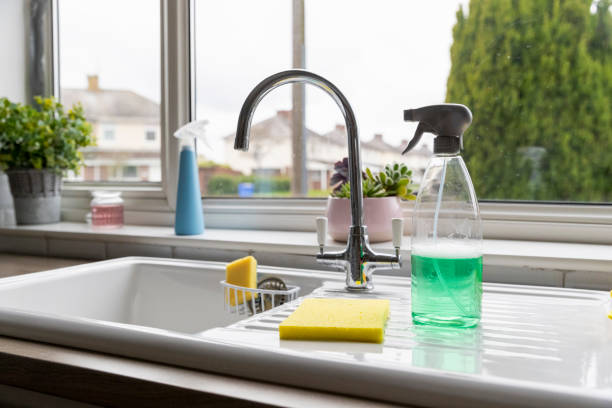
Some tips to make it easier:
- Keep an open mind: Don’t expect homemade cleaners to be exactly like the store-bought versions. They may have different scents, textures, or cleaning abilities. But with a bit of tweaking, you can find DIY formulas that work just as well, if not better.
- Do your research upfront: Spend some time exploring recipes and ingredients so you know which ones will be most effective for your needs. Reading reviews and testing small batches can also help you identify the right homemade solutions.
- Start with simple, multipurpose cleaners: Begin with all-purpose sprays and surface cleaners before tackling more specialized products like laundry detergent or oven cleaner. This eases you into the homemade process.
- Enlist family members: Get the whole household involved in making and using the new homemade cleaners. Assign tasks and have everyone pitch in. This makes the transition more of a group effort.
- Be patient with yourself: It may take some trial and error to land on the perfect homemade recipes. Don’t get discouraged if something doesn’t work as well as you’d hoped. Just keep adjusting until you find what works best.
Making the switch to homemade cleaning solutions may take a little adjustment, but the rewards are well worth it. You’ll save money, reduce your environmental impact, and enjoy a healthier, happier home.
The Benefits of an Eco-Friendly Cleaning Routine
Beyond the personal benefits, adopting a homemade cleaning regimen also has a positive impact on the environment. By ditching commercial cleaners filled with harsh chemicals, you’re reducing pollution and helping to create a healthier planet.
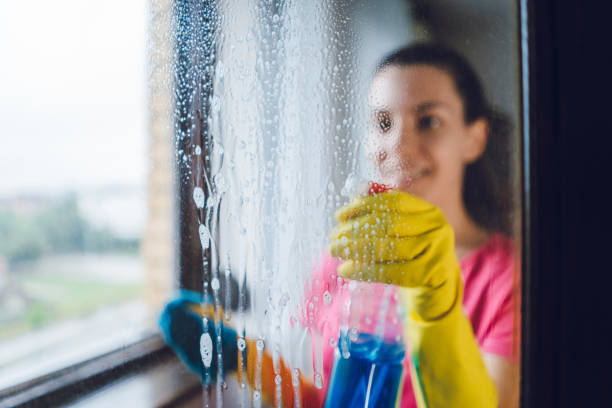
Some of the key environmental advantages include:
- Reduced Waste: Homemade cleaners use minimal packaging compared to store-bought products, cutting down on plastic waste and unnecessary single-use containers. Many recipes can be made in reusable spray bottles or jars, creating less overall waste.
- Lower Carbon Footprint: The ingredients for DIY cleaners have a much smaller carbon footprint than the manufacturing and transportation of commercial products. There’s no need for energy-intensive industrial production or emissions from shipping across the country.
- Improved Indoor Air Quality: Many commercial cleaners release volatile organic compounds (VOCs) and other airborne pollutants that can degrade your indoor air quality. Homemade alternatives are much gentler, allowing you to clean without compromising the air your family breathes.
- Safer for Aquatic Life: The plant-based, biodegradable ingredients in homemade cleaners are less toxic to waterways and marine ecosystems compared to the harsh chemical runoff from commercial products. This helps protect the delicate balance of aquatic environments.
- Promotion of Sustainable Agriculture: Many of the key ingredients in DIY cleaners, like essential oils and vegetable-based glycerin, are derived from sustainable agricultural practices. Supporting these natural industries helps drive demand for eco-friendly growing methods.
Making the switch to a homemade, eco-friendly cleaning routine is a simple way to do your part in creating a more sustainable future. And with the cost savings and customization benefits, it’s a win-win for you and the planet.
Frequently Asked Questions
Q: How long do homemade cleaners last?
A: Most homemade cleaning products will stay fresh for 1-3 months when stored properly in a cool, dark place. The shelf life may vary depending on the ingredients used – those with a higher water content tend to have a shorter lifespan. Essential oils also help preserve freshness, so recipes with them will last a bit longer.
Q: Can homemade cleaners be used on all surfaces?
A: While homemade cleaners are generally safe for a wide variety of surfaces, it’s always a good idea to spot test on a small, inconspicuous area first. Avoid using acidic cleaners like vinegar on delicate surfaces like marble or granite, as they can etch or dull the finish over time. Also be cautious using baking soda on soft metals, as it can be too abrasive.
Q: Are there any limitations or downsides to homemade cleaners?
A: The main potential downside is that homemade cleaners may not be as strong or effective as commercial products for extremely heavy-duty cleaning jobs. They also require more frequent batches to maintain freshness, as they don’t contain the same synthetic preservatives. And some people may find the preparation process a bit more time-consuming compared to just grabbing a store-bought cleaner.
Q: How do homemade cleaners compare to commercial products?
A: Homemade cleaners are typically more affordable, eco-friendly, and free of harsh chemicals. However, commercial cleaners may have slightly more powerful cleaning abilities, especially for tough jobs like oven cleaning or mold and mildew removal. It’s about finding the right balance for your needs and preferences.
Q: Where can I find more inspiration and ideas?
A: There are tons of great online resources, blogs, books, and social media communities dedicated to sharing homemade cleaning recipes and tips. Start exploring sites like Wellness Mama, The Spruce, and the r/CleaningTips subreddit on Reddit to find new ideas and connect with other DIY cleaning enthusiasts. You can also check out books like “The Naturally Clean Home” and “Baking Soda: Over 500 Fabulous, Fun, and Frugal Uses” for even more inspiration.
Conclusion: Embrace the Joy of Homemade Cleaning
Making the switch to homemade cleaning products may seem daunting at first, but the benefits are well worth the effort. By taking control of the ingredients in your cleaners, you’ll enjoy a healthier, more sustainable home while saving money in the process.
The key is to start small, experiment, and find the homemade recipes and techniques that work best for your needs. Don’t be afraid to get creative and have fun with it! Mixing up your own custom cleaning solutions can be surprisingly rewarding.
Before long, you’ll wonder how you ever got by with harsh commercial cleaners. Embracing a homemade, eco-friendly cleaning routine is a simple yet impactful way to reduce your environmental footprint, improve your indoor air quality, and create a safer, more nourishing home for you and your family.
So what are you waiting for? Dive in, get mixing, and enjoy the satisfaction of clean living, naturally. Your home and the planet will thank you.
If you have any doubts or queries, feel free to write to us. It would be a great pleasure to help you out.
